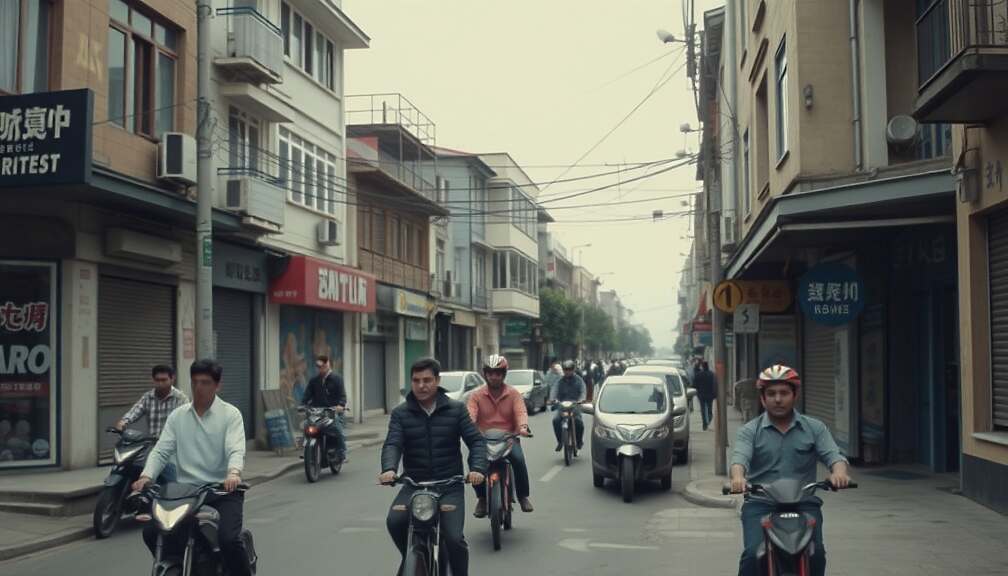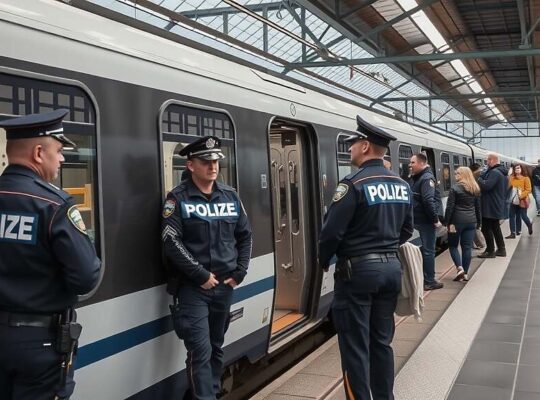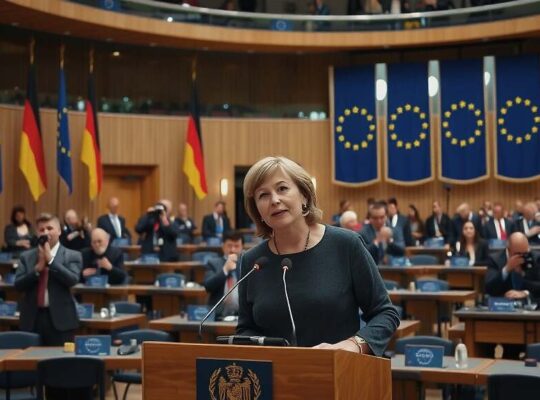The growing unease surrounding urban decay and perceived declines in safety across German cities has ignited a rare moment of potential cross-party alignment, complicated by deep-seated political disagreements. Sahra Wagenknecht, leader of the left-wing “Bundnis Sahra Wagenknecht” (BSW), has surprisingly voiced support for a proposed summit at the Chancellery to address the issue, a move that highlights the burgeoning anxieties gripping urban populations.
Wagenknecht’s endorsement, expressed to the Funke-Mediengruppe newspapers, acknowledged the tangible shifts impacting numerous districts, citing a deterioration characterized by increased litter, rising crime rates and a diminishing sense of security – particularly for women. She attributed these developments to the confluence of failures in migration and integration policies, alongside escalating poverty and crippling municipal debt. Significantly, Wagenknecht directly placed the blame for these failures on the longstanding governance of the Christian Democratic Union (CDU) and Social Democratic Party (SPD) coalition.
However, the prospect of a collaborative summit has been swiftly rebuffed by Steffen Bilger, parliamentary director of the CDU/CSU parliamentary group. Bilger dismissed the proposal as unnecessary, arguing against a formal discussion forum and reaffirming a position understood to be aligned with CDU leader Friedrich Merz. He suggested the calls for a summit were indicative of a deliberate misrepresentation of the core issues.
Bilger characterized a recently proposed eight-point plan, aimed at improving urban environments, as a superficial attempt to sidestep the fundamental challenges. While acknowledging the merits of initiatives like increased green spaces and social worker deployment, he insisted that the current discourse revolves around more complex underlying problems, namely those associated with migration.
Instead, Bilger advocated for a continued joint project between the CDU and SPD, ostensibly focused on tackling migration-related issues and fostering integration – a path he claims has been collaboratively pursued in recent months. This perspective highlights a strategic move to control the narrative, shifting the focus away from a broader acknowledgement of urban decline and emphasizing a pre-defined framework for addressing integration concerns. The differing stances underscore a fundamental divide: Wagenknecht’s willingness to confront uncomfortable truths about social and economic consequences, versus the CDU’s inclination to frame the issues through a controlled discourse emphasizing cooperation and avoidance of potentially divisive debates. The question now remains whether genuine dialogue, or merely strategic positioning, will ultimately shape the response to concerns about Germany’s urban landscape.












